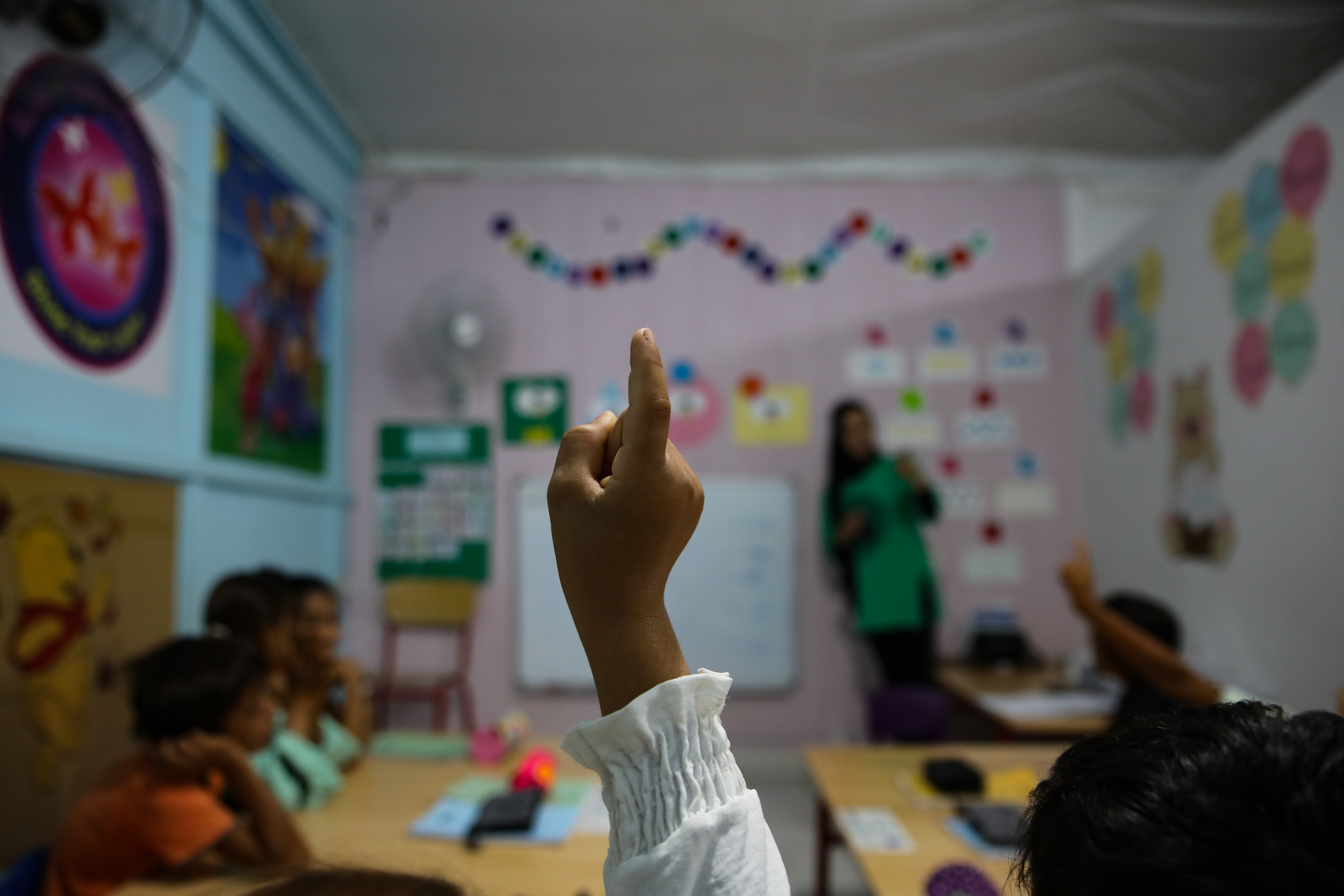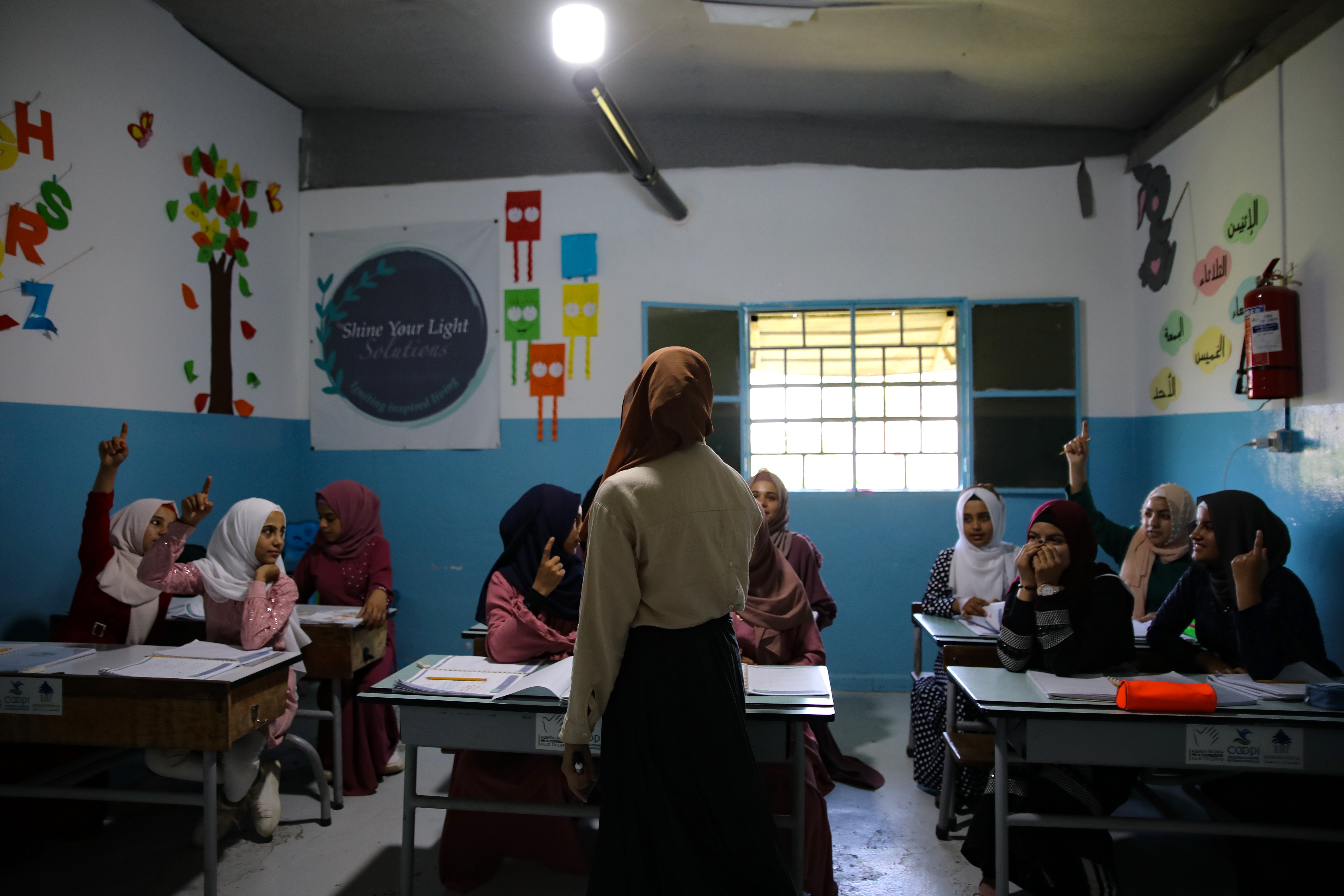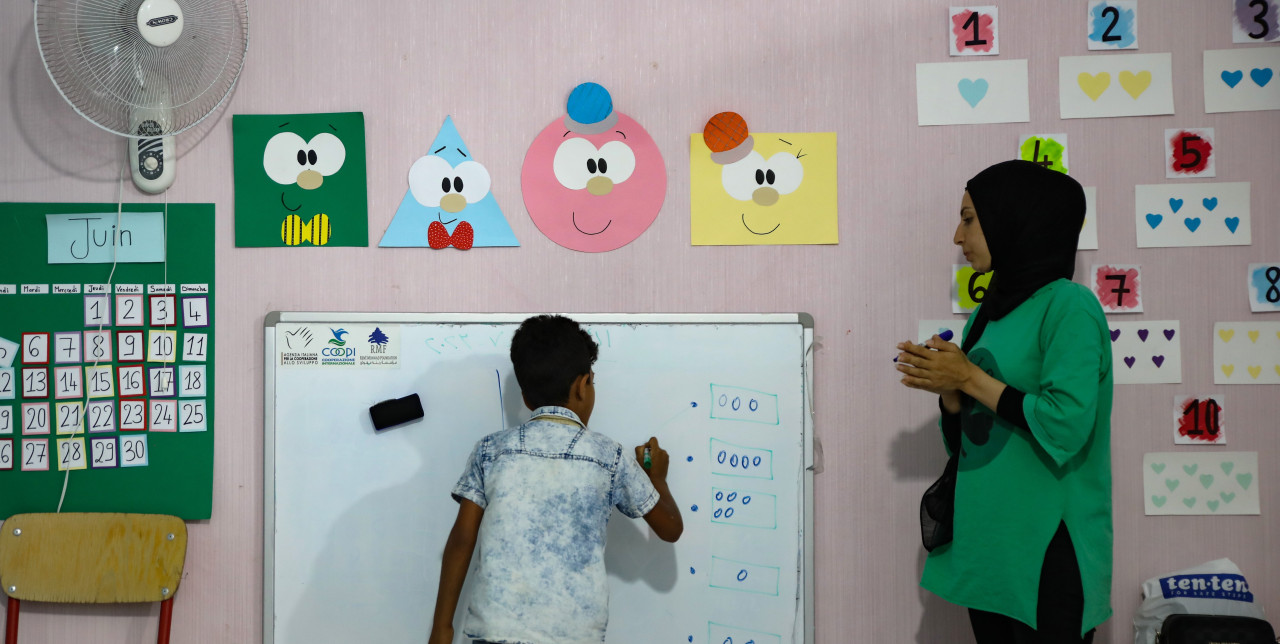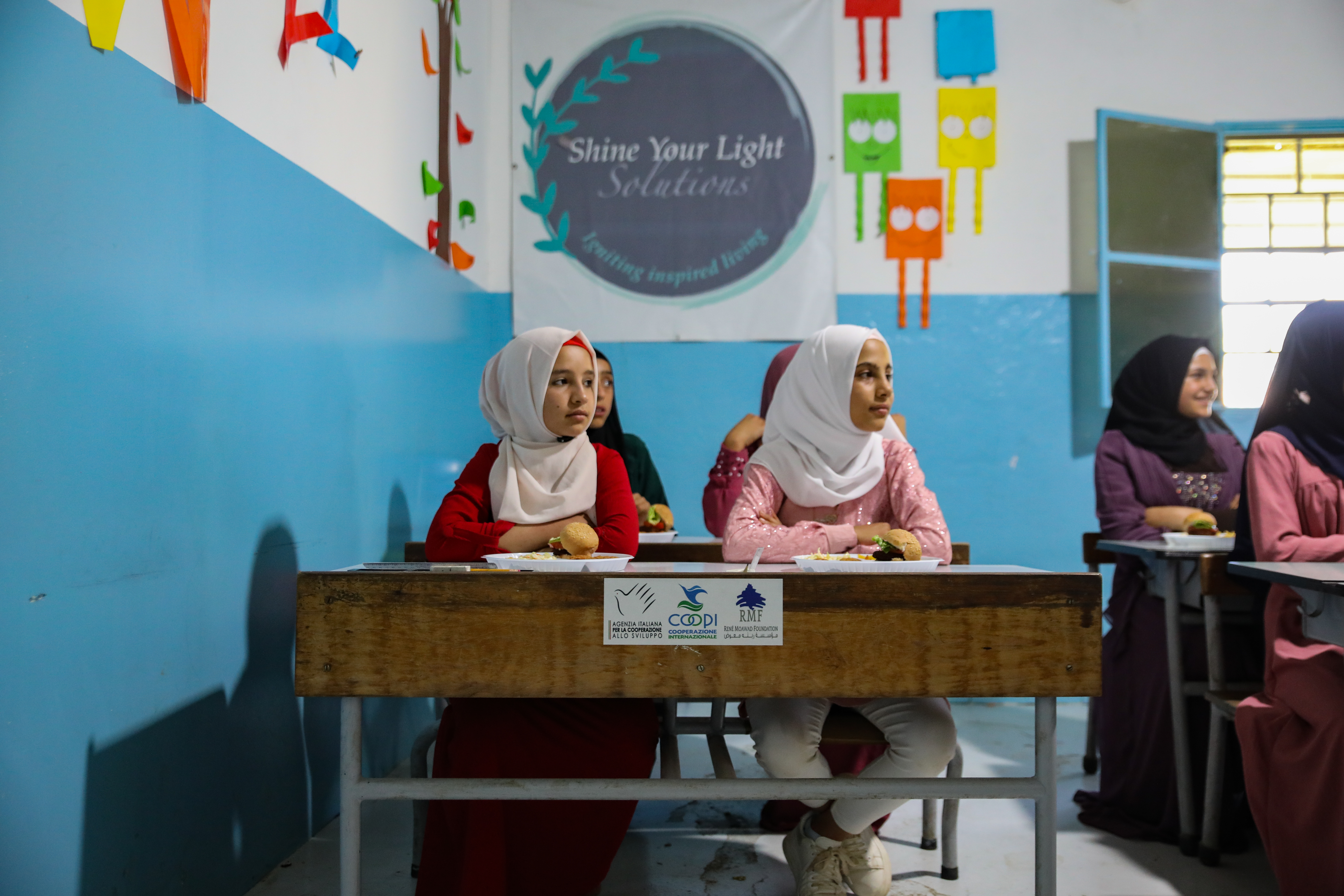02-10-2023 | di COOPI
Lebanon. Challenges in ensuring education for children in Akkar and Tripoli
Lebanon's education system has faced numerous challenges in recent years, and nowhere is this more evident than in the North and Akkar Governorates. Economic hardships, political instability, and the ongoing Syrian refugee crisis have placed immense strain on the education sector, threatening the future of countless children. However, in a context marked by continuous challenges, COOPI - Cooperazione Internazionale, thanks to funding provided by the Italian Agency for Development Cooperation (AICS), is making a significant impact by promoting psychosocial support in public schools and centers in Tripoli and Akkar.
The Struggle for Continuity in Education
Since October 2019, Lebanon has been caught in a whirlwind of events that have deeply impacted the education sector. Protests, triggered by concerns about economic hardships and governance, resulted in disruptions to school programs. The subsequent economic crisis further strained resources, leading to funding shortages for schools. As schools struggled to function optimally, the emergence of the COVID-19 pandemic brought about widespread school closures, leaving students isolated. This tumultuous period was compounded by public sector teachers' strikes, caused by the devaluation of salaries.
The cumulative effect of these challenges has been the unavailability of continuous education for children, impeding their access to quality learning experiences and threatening their future prospects.

Impact on Children's Well-being and Protection
The absence of consistent educational opportunities has not only hindered children's academic growth but has also triggered a range of protection risks. Without a structured routine, children are at a heightened risk of exposure to exploitative labor, early marriages, and other forms of abuse. Furthermore, the social and emotional weight of these circumstances cannot be understated. Children are grappling with increased stress, anxiety, and a sense of uncertainty about their futures. The lack of peer interaction, support from teachers, and the opportunity for personal growth through education has taken a toll on their overall well-being.
The Impact of COOPI's Initiatives
In the face of these challenges, COOPI, in collaboration with AICS, has undertaken efforts to strengthen the education system in Tripoli and Akkar. COOPI acts through multifaceted initiatives, encompassing not only the educational aspect but also the psychosocial well-being of vulnerable children and their families.
Through targeted interventions, COOPI is creating conducive learning environments in public schools, ensuring that children have access to quality education even amid economic constraints and strikes. For this purpose, COOPI is partnering with a local NGO, Rene Moawad Foundation and local CBOs (Community-based organizations), whose centers offer a haven for vulnerable children, providing essential psychosocial support and protection mechanisms. By nurturing a sense of community, belonging, and personal growth, COOPI is helping children rebuild their emotional resilience.

Active in Lebanon since 2013, Coopi has long been involved in projects targeting the Syrian population and host communities. In recent years, following the severe economic crisis exacerbated by the COVID-19 pandemic and the Beirut port explosion, Coopi has focused on child protection actions and WASH interventions. It currently runs two cash-for-work projects, through which it provides employment opportunities for 1,000 people in the municipalities of Tripoli and Akkar district in Northern Lebanon.
Photo: ph Florient Zwein




 Lebanon
Lebanon
